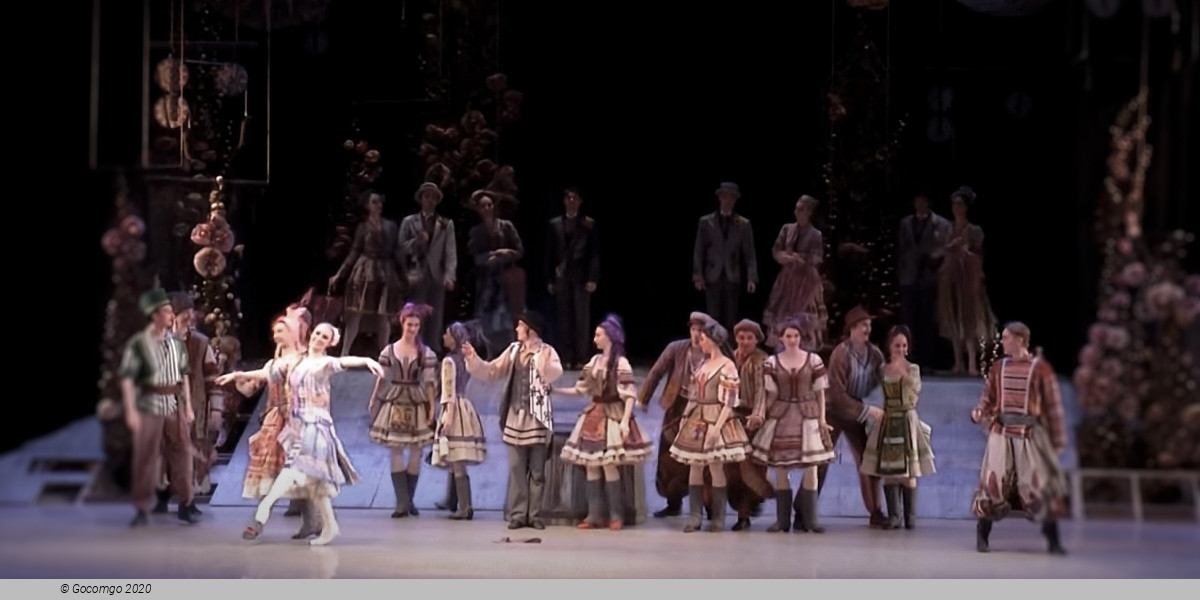National Opera of Ukraine (Kiev, Ukraine)
National Opera of Ukraine

The Kyiv Opera group was formally established in the summer of 1867, and is the third oldest in Ukraine, after Odessa Opera and Lviv Opera. Today, the Kyiv Opera Company performs at the National Opera House of Ukraine named after Taras Shevchenko in Kyiv.
Established in the summer of 1867 by Ferdinand Berger (? - 1875). Berger succeeded in inviting many talented singers, musicians, and conductors, and the city council (duma) had offered the newly created troupe to use the City Theatre (constructed in 1856, architect I. Shtrom) for their performances. Officially, the theatre was named the City Theatre but was most commonly referred to as the Russian Opera. The day of the first performance, November 8 (October 27 old style), 1867 was made a city holiday. The performance of the opera Askold's Tomb by Alexey Verstovsky was the troupe's debut. The initial success is attributed to the vocal talents of that time of O. Satagano-Gorchakova, F. L'vov, M. Agramov but also the captivating plot is taken from some principal pages of the ancient history of the city.
Early performances were mostly Russian operas, including Ruslan and Ludmila by Mikhail Glinka, Rusalka by Alexander Dargomyzhsky, Maccabees by Anton Rubinstein and The Power of the Fiend by A. Serov, as well as translated European operas including The Barber of Seville by Rossini, The Marriage of Figaro by Mozart, Der Freischütz by Weber, Lucia di Lammermoor by Donizetti, and operas by Giuseppe Verdi, which became the favourite of the Kyivites.
On February 4, 1896, after a morning performance of Eugene Onegin by Tchaikovsky, a fire erupted from an unextinguished candle in the theatre. The fire consumed the whole building within several hours. One of the largest musical libraries in Europe along with numerous costumes and stage props of many performances were lost during the fire. After the fire of the City Theatre, the troupe performed on other stages for several years, including Bergonie's Theatre (now the National Theatre of Russian Drama named after Lesya Ukrainka), Solovtsov's Theatre (now the National Theatre named after Ivan Franko) and even on the arena of the famous Krutikov's Circus.
Early 20th century
After the fire, the City Council had announced the international competition to design a new building for the Opera Theatre in Kyiv. The winning proposal was by Victor Schröter. The exterior was designed in Neo-Renaissance style and had accounted for the needs of the actors and the spectators. The interior was redesigned in a classical style and called Viennese Modern. However, his greatest achievement is considered to be the stage - one of the largest in Europe designed to the latest engineering standards.
On September 29 [O.S. September 16] 1901, the solemn opening of the new premise of the theatre took place with a performance of cantata Kyiv by composer Wilhelm Hartweld (1859 - 1927) and a presentation of the opera Life for the Tsar by M. Glinka.
On 14 September [O.S. 1 September] 1911, there was a performance of Rimsky-Korsakov's The Tale of Tsar Saltan at the Kyiv Opera House in the presence of the Tsar and his two oldest daughters, the Grand Duchesses Olga and Tatiana. The theatre was occupied by 90 men posted as interior guards. During the intermission of a performance, Prime Minister Pyotr Stolypin was killed. According to Alexander Spiridovich, after the second act "Stolypin was standing in front of the ramp separating the parterre from the orchestra, his back to the stage. On his right were Baron Fredericks and Gen. Suhkomlinov." His personal bodyguard had gone to smoke. Stolypin was shot twice, once in the arm and once in the chest by Dmitry Bogrov, a leftist revolutionary, trying to rehabilitate himself. Bogrov ran to one of the entries and was subsequently caught. "He [Stolypin] turned toward the Imperial Box, then seeing the Tsar who had entered the box, he made a gesture with both hands to tell the Tsar to go back." The orchestra began to play "God Save the Tsar." The doctors hoped Stolypin would recover, but, despite never losing consciousness, his condition deteriorated. The next day, the distressed Tsar knelt at Stolypin's hospital bedside and kept repeating the words "Forgive me". Stolypin died three days later.
In the first decade of the 20th century, the Kyiv Opera Theatre attracted the most outstanding Ukrainian and Russian singers, including O. Petlyash, P. Tsecevich, K. Voronets, M. Medvedev, K. Brun, O. Mosin and O. Kamionsky and famous opera stars from the West often came on tours. Several unusual for the time performances took place on the stage: Die Walkure by Wagner, Sadko by Rimsky-Korsakov and Mefistofele by Arrigo Boito.
As Kyiv began to grow and with the conclusion of World War I, the Kyiv Opera occupied a special place in the USSR and the world. The Kyiv Opera Theatre was considered to be one of the most prestigious in Ukraine and Russia. Kurt Adler was First Conductor from 1933-1935.
In 1981 the world premiere of a ballet based on the life of Olga of Kiev was performed to commemorate the 1500th anniversary of the city.

